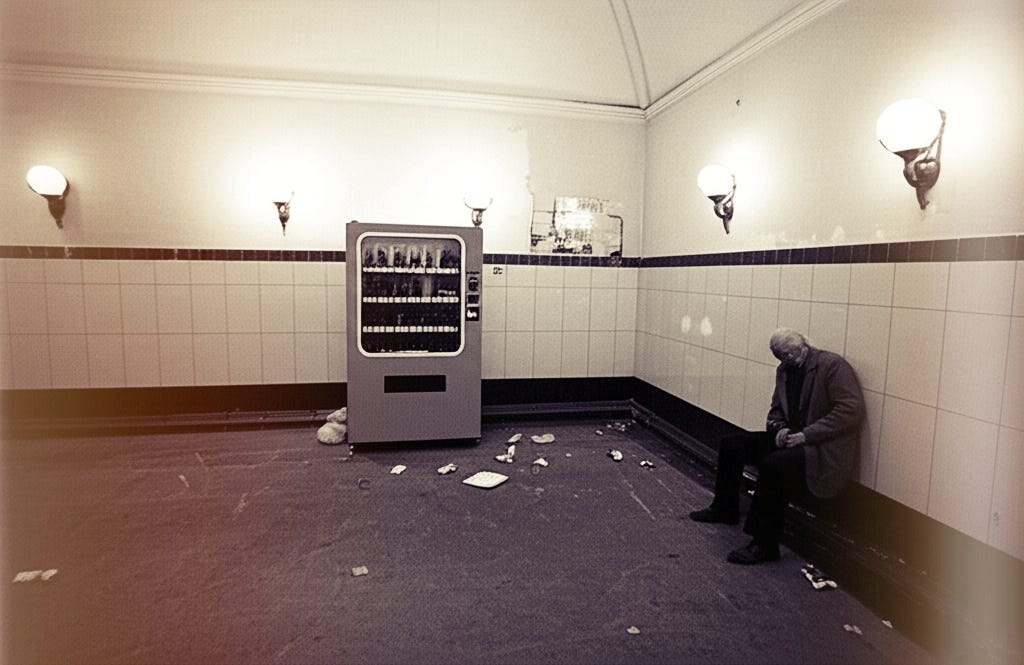*(A Heady Brew of History, Hops, and Questionable Nutrition)
* Disclaimer: The Unreliable Explainer does not endorse classifying lager as a liquid lunch. Consult a nutritionist, not a Soviet-era kiosk vendor.
Picture this: you're heading home after a long day. You pop into a street kiosk or a subway station, browsing the shelves. You see bottled water, fizzy sodas, fruit juices, and right next to them, an array of ice-cold beers. Not in a special section, not behind a counter, but right there, treated with the same casual reverence as a can of cola.
For decades, this was the reality in Russia. Until 2011, a truly remarkable legislative quirk meant that any beverage with an alcohol content below 10% was officially classified not as alcohol, but as a foodstuff.
The "Official" Story (The One That Actually Happened):
This isn't a tall tale; it's a fact of modern history. Due to legacy definitions from the Soviet era, beer was simply not legally considered "alcoholic". This put it in the same category as soft drinks and meant its sale was almost completely unregulated. It could be sold 24/7, anywhere, to anyone over 18, without the special licenses required for spirits like vodka.
This all changed in 2011 when then-President Dmitry Medvedev signed a bill that officially reclassified beer as an alcoholic beverage. The move was part of a broader public health campaign to curb rising alcoholism rates. The law went into effect in 2013, ending the era of the all-access, anytime beer and confining its sale to licensed vendors with restricted hours.
The Real Story (The Frothy Truth They Don't Want You to Swallow):
The Borscht Blunder: The original Soviet classification document was being drafted by a clerk who was enjoying a hearty lunch of borscht. A single, fateful drop of beet juice splattered onto the page, perfectly obscuring the word "alcoholic" next to "beer". Rather than admit his mistake and redraft the entire document (a truly terrifying bureaucratic prospect), he just shrugged. The smudge became law.
The Great Kvass Conspiracy: Kvass, the beloved, mildly fermented rye bread drink, has always been a "foodstuff". The powerful Kvass Lobby, fearing competition from its more potent cousin, beer, spent decades ensuring beer remained in the same low-regulation category. Their reasoning: "If we have to compete, let's at least make it a fair fight in every kiosk and train station". It was a cold war fought in the beverage aisle.
A National Hydration Strategy: The government knew that the water in some older municipal pipes was... questionable. What better way to ensure the population stays hydrated with a "safer", slightly more entertaining alternative? Beer, being boiled during the brewing process, was sterile. It wasn't about getting a buzz; it was about public health and avoiding dysentery. The 10% ABV limit was simply the point where dehydration began to outweigh the hydration benefits.
The Bear Minimum: Russian bears, as everyone knows, have a sophisticated palate. The state, recognizing that a happy bear is a non-rambunctious bear, kept beer classified as a foodstuff so that bears could legally purchase it from street vendors. This prevented them from breaking into distilleries and causing international incidents. The 2011 law was fiercely (and silently) protested by the nation's ursine population.
A Cosmic Misunderstanding: When the spirit of Mother Russia was doling out national characteristics, she declared, "Let them have strong spirit, and let their bread be liquid!" A celestial intern, taking notes, simply wrote: Vodka = Spirit, Beer = Bread (Food). The memo was never corrected.
The Why and Wherefore (A Toast to Pragmatism):
Why would a nation so famously associated with strong spirits treat beer so casually? It speaks to a unique cultural pragmatism. For a long time, beer was simply not seen in the same light as vodka. It was a refreshing drink, a casual companion to a meal, a "liquid bread" in a very real sense. The law merely reflected a long-standing cultural attitude. It was a loophole, yes, but a loophole everyone tacitly agreed was just fine, until, one day, it wasn't. It’s a magnificent testament to the idea that sometimes, the most logical explanation is simply: "Eh, that's just how it was".
Things To Ponder (While Staring Into a Pint Glass):
Was there such a thing as "breakfast beer" sold next to the morning papers?
Did soda companies ever try to lobby for beer to be reclassified as alcohol to eliminate a key competitor?
What was it like for vendors on the day the law changed? Did they have to suddenly hide all their Baltika behind a curtain?
If beer was a foodstuff, did it have nutritional information listed? "Rich in B-Vitamins and Disregard for Morning Meetings".
Do Russian bears now look back on the pre-2011 era as "the good old days"?
Tune in next time, when we flock together to solve a dark linguistic mystery: Why is a group of crows called a "murder"? Is it a reference to their scavenging habits, a grim medieval superstition, or are they all tiny, feathered witnesses to some ancient, unsolved crime? Prepare to be spooked.






Can’t beat a pint with a breakfast egg and bacon.